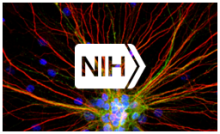
Last month, members of the NIH BRAIN Initiative Neuroethics Working Group (NEWG) and Multi-Council Working Group (MCWG) discussed ethical challenges in implanted neural device research in humans, a new concept for funding, and more.
On January 24, 2022, the BRAIN Initiative Neuroethics Working Group (NEWG) held its thirteenth meeting. The NEWG ensures that neuroethics is fully integrated into the BRAIN Initiative as new tools and technologies emerge. Meeting participants talked about ethical issues in research studies involving participants with neural device implants.
Dr. John Ngai, Director of the NIH BRAIN Initiative, updated the group on BRAIN Initiative neuroethics activities, including funding for administrative supplements to integrate neuroethics into BRAIN-funded projects. Next, Drs. Ashley Feinsinger (UCLA) and Sara Goering (University of Washington) discussed a proposed neuroethical framework to guide implanted neural device research in humans and ethical challenges with human agency in human brain-computer interface research, respectively. Dr. Christine Grady, NEWG co-chair and Chair of the NIH Bioethics Department, led a panel discussion about unresolved challenges in this research space. The panel was composed of the two speakers, Dr. Kareem Zaghloul (an NINDS clinician-investigator), and Mr. James Johnson (a patient-participant). Along with NEWG members, the panel emphasized the importance of recognizing patients for their contributions, communicating clearly with patient-participants and caregivers as studies progress, distinguishing short-term “opportunity studies” usually performed during clinically indicated procedures from long-term studies, and several other topics. After a break, the NEWG discussed potential activities and efforts for 2022 and beyond. For more details, please view the NEWG meeting summary(pdf, 213 KB) and archived videocast.
The next day, the Multi-Council Working Group (MCWG) met to discuss BRAIN updates and a new concept for funding.
To kick off the meeting, Dr. Ngai updated the group on the transformative projects from the BRAIN 2.0 report and efforts to advance scientific excellence through inclusivity. He also highlighted the BRAIN Initiative Alliance Toolmakers' Resources page and BRAIN Initiative Workspace to Organize the Knowledge Space (BRAINWORKS), a project aimed to develop a web application that uses artificial intelligence to organize emerging neuroscience literature. As for the transformative projects, Dr. Ngai noted several milestones, including creating the first comprehensive brain cell atlas of the mammalian cortex, breakthroughs in systemic gene delivery technology, and a 10-year strategy for mapping brain connectivity across scales.
The meeting continued with an update on NEWG activities and a discussion on a new concept for an initiative that would use multi-disciplinary, synergistic approaches to develop non-invasive brain functional imaging technologies. The group considered ways to ensure that proof-of-concept technologies successfully move from proof-of-concept testing to first-in-human trials. The group also recognized the importance of developing technologies capable of imaging beyond the brain and spinal cord, and the value of engaging non-neuroscientists, such as engineers and computer scientists. They also suggested including neuroethics in the funding concept. For details, please view the MCWG meeting summary(pdf, 203 KB) and videocast.
The next MCWG and NEWG meetings will take place on Monday, May 16 and Tuesday, August 23, 2022, respectively.
